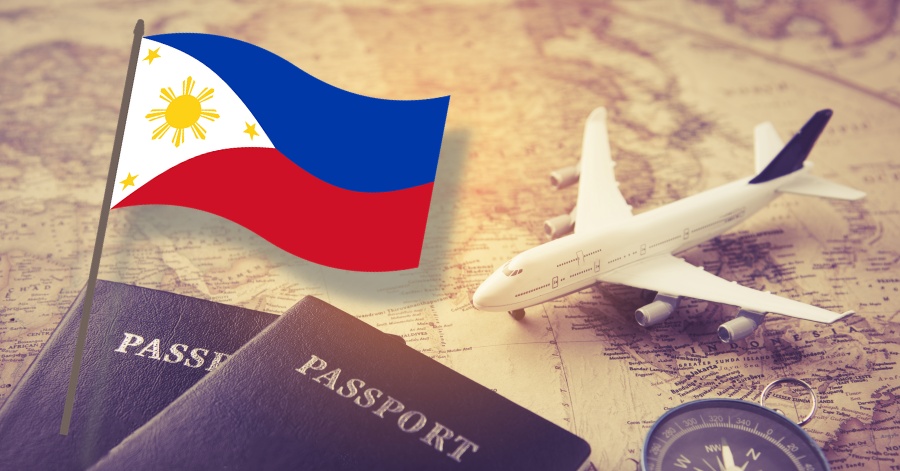The required bank balance for a Philippines visa varies by visa type, tourists should maintain around $500 to $1000 per week of planned stay.

Bank Balance Requirements
The bank balance requirement is a crucial factor for obtaining a Philippine visa. Whether you are applying for a tourist, business, or student visa, showing financial stability is of utmost importance to prove that you can sustain yourself during your stay. Here are some specific requirements and documents you may need to prepare.
Minimum Balance
The minimum bank balance requirement can vary based on the type of visa and the duration of your stay. However, a general rule of thumb for a tourist visa is to have at least $500 to $1000 in your account for every week you plan to stay.
- Maintain a balance of around $2,000 to $4,000 for a month-long visit.
- Business travelers may need to show a larger balance, typically above $5,000.
- Student visa applicants often need to prove sufficient funds for tuition plus living expenses, which can exceed $10,000.
Bank Statements
Having the right amount of money in your bank account is one thing, but you also need to prove it by providing official bank statements.
- Statements should ideally be from the last 3 to 6 months.
- They must show consistent balances and not just sudden large deposits.
- All statements should be officially stamped by your bank.

Other Financial Documents
Besides bank statements, there are other financial documents that you might be asked to present. These could include:
- Income Tax Returns (ITR) for the last three years.
- Salary slips for the last six months.
- Investment proofs like bonds, shares, and fixed deposits.
Types of Visas for the Philippines and Their Requirements
| Visa Type | General Requirements | Bank Balance Requirements | Duration of Stay | Other Requirements |
|---|---|---|---|---|
| Tourist Visa | Passport valid for at least 6 months, completed application form, recent passport-sized photos | $500 to $1000 per week of stay | Typically up to 30 days, extendable | Travel itinerary, hotel booking |
| Business Visa | Passport valid for at least 6 months, completed application form, Letter of Invitation from Philippine company | Minimum $5,000 | Depending on the invitation, usually up to 30 days initially | Proof of business activities such as company registration |
| Student Visa | Passport valid for at least 6 months, completed application form, school acceptance letter | Tuition plus living expenses, often above $10,000 | For the duration of the study program | School records, medical clearance |
How to Maintain a Healthy Bank Balance
Maintaining a healthy bank balance is crucial, not just for visa applications but for your overall financial well-being. Below are some strategies and tips that can guide you.
Best Practices
- Regularly Monitor Your Account: Frequent checks allow you to identify any unusual activity and maintain the required minimum balance.
- Limit Unnecessary Expenditures: Focus on needs over wants, especially when you are planning to apply for a visa.
- Automate Savings: Set up an automatic transfer to your savings account each month right after receiving your salary.
- Diversify Income Streams: Don’t rely on a single source of income. Consider freelance work or part-time jobs.
Mistakes to Avoid
- Ignoring Bank Fees: These can quickly eat into your balance, so know what your bank charges for ATM withdrawals, fund transfers, and other services.
- Random Large Deposits: This could raise questions during the visa application process.
- Overusing Credit: Relying too much on credit cards can lead to debt, affecting your overall financial health.
Alternatives to Bank Balance
In some cases, you may not have the required bank balance for your visa application. Here are some alternative options that could also serve as proof of financial stability.
Sponsorship
- Find a Credible Sponsor: This could be a family member or friend who is financially stable.
- Document the Relationship: Proof of relationship and a letter of commitment from the sponsor can be crucial.
- Sponsor’s Bank Statements: Just as with your bank statements, these need to be official and cover a certain period.
Employment Verification
- Letter from Employer: This should confirm your employment status, salary, and the duration of your employment.
- Salary Slips: Provide salary slips for the last 3-6 months to further confirm your financial stability.
The Application Process
The visa application process for the Philippines involves several critical steps. A systematic approach can help you navigate through these stages smoothly. Below are the details you need to know.
Steps to Apply
- Consult the Consulate’s Website: Before initiating the application process, thoroughly go through the official website of the nearest Philippine Consulate.
- Gather Required Documents: Assemble all necessary documents, including your passport, application form, photos, and financial records like bank statements.
- Fill the Application Form: Complete the official application form carefully. Incorrect information can lead to delays or denial.
- Schedule an Interview: If required, schedule and attend an in-person interview at the consulate.
- Submit Application and Documents: After cross-checking your documents and application, submit them either online or in person, based on the instructions provided.
For more information on visa application steps, visit the Visa Application Process on Wikipedia.
Visa Fees
- Check Fee Structure: Visa fees vary depending on the type and duration of the visa. Make sure you know the exact amount.
- Payment Methods: Find out acceptable payment methods—some consulates may not accept cards or checks.
- Non-refundable: Keep in mind that visa fees are generally non-refundable, even if your application is denied.

Implications of Inadequate Bank Balance
Failing to meet the bank balance requirements can have serious implications on your visa application. Here are some of the consequences you might face.
- Visa Denial: The most direct implication is the rejection of your visa application.
- Delay in Processing: Lack of adequate funds may lead to additional scrutiny, causing delays.
- Limited Visa: You may be granted a visa but with a shorter duration than you initially requested.